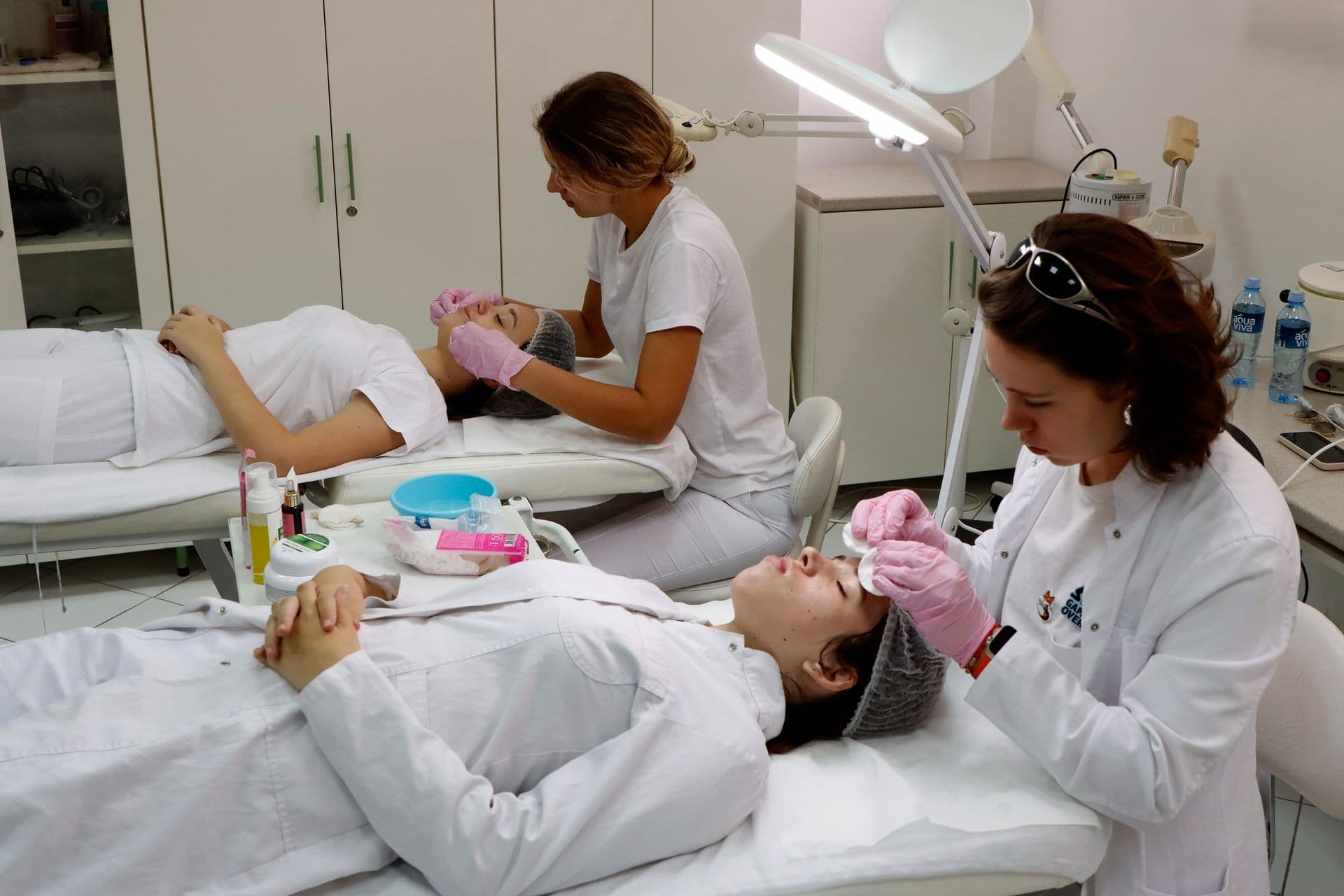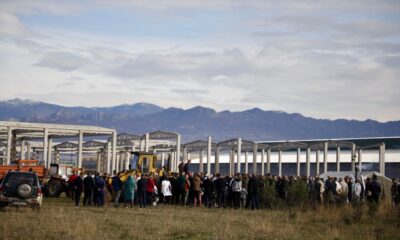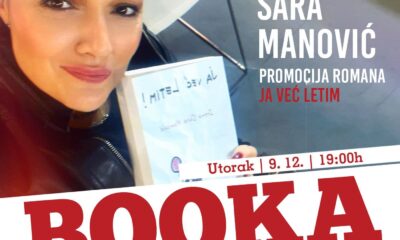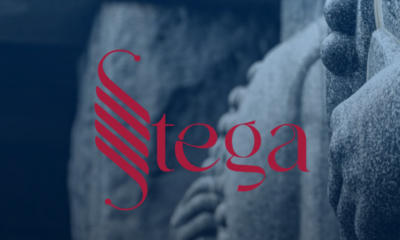Sports
Quality Education Boosts Career Prospects for Beauty Technicians

The Stručna medicinska škola in Podgorica is successfully training new generations of beauty technicians, providing them with skills that enhance their employability. Most students who complete the beauty technician program find jobs quickly and do not pursue further education. Over four years, students learn about facial and body care, preparing them for the competitive job market.
Insights from the Classroom
A recent visit by the Pobjeda team to the school revealed a structured environment focused on serious learning. The school features well-maintained facilities, vibrant plants in the hallways, and a display case showcasing student achievements. Notably, students are required to leave their mobile phones in designated lockers during school hours.
Inside the beauty technician classroom, students were engaged in hands-on practice involving facial cleansing, exfoliation, and massage. Branka Kovacevic, the assistant director, and Ranka Konatar, the practical education organizer, emphasized the school’s commitment to maintaining high educational standards. They noted the use of modern equipment, such as ultrasound devices and lymphatic drainage machines, along with various herbal-based cosmetic products.
Teodora Bulatovic, a senior student, expressed her enthusiasm for the rigorous curriculum. She highlighted the excellent teaching staff, stating, “The professors are dedicated and willing to explain the material multiple times until we understand.” Bulatovic plans to seek employment immediately after graduation and aims to specialize in nail care and facial treatments.
Adapting to Market Demands
The beauty technician program was established about ten years ago, and the school has continuously evolved its curriculum to meet the changing demands of the job market. Currently, there are four classes within the program, with approximately 80 students enrolled. Kovacevic noted that many students are motivated to enroll by their parents, who believe that completing this program will provide them with stable job opportunities.
Historically, the school offered a third-level beauty program, but it transitioned to a fourth-level qualification to better align with market needs. The curriculum now includes comprehensive training in both facial and body treatments, essential for graduates entering the workforce.
According to Kovacevic, “We have both qualified and unqualified staff teaching here. Qualified instructors hold degrees and provide theoretical lessons, while unqualified staff, who only have secondary school education, conduct practical classes.” This dual approach ensures that students receive quality education from experienced professionals.
Students also have the opportunity to participate in exchange programs in Slovenia, where they gain valuable international experience that enhances their training.
Addressing Market Challenges
Ranka Konatar raised concerns about the qualifications of some practitioners in the beauty industry, questioning whether they have received adequate training or merely purchased certificates from unregulated courses. “It’s difficult to determine if someone has undergone four years of training or not,” she stated. “Clients can often gauge the quality of services received, which underscores the importance of proper education.”
While the need for regulation remains, Konatar emphasized that students from their program receive valuable knowledge and respected diplomas that distinguish them from those who have completed shorter courses or self-directed training.
Despite ongoing challenges, the school administration is responsive to student and market needs, continuously improving the program. They have plans to offer beauty services to the public at reduced prices, although realizing this initiative requires significant financial investment and logistical organization.
As part of their commitment to practical experience, students have also served as models for permanent makeup and nail services, which allows them to apply their skills in real-world scenarios. The administration is optimistic about future developments in the program.
Future Initiatives and Workforce Development
The Stručna medicinska škola has recently obtained a license to implement adult education programs, which will launch soon. Participants in the shortened training will receive certifications from the relevant ministry, allowing them to work in the industry. This initiative aims to reduce unemployment by providing targeted training for specific fields.
With support from the Chamber of Commerce and the Ministry of Education, Science and Innovation, the school aims to equip individuals with specialized skills that will enhance their employability in the beauty sector. “Regardless of the profession a student chooses, passion for their work is key to success,” Konatar concluded.
-

 World3 days ago
World3 days agoCoronation Street’s Shocking Murder Twist Reveals Family Secrets
-

 Entertainment4 months ago
Entertainment4 months agoKate Garraway Sells £2 Million Home Amid Financial Struggles
-

 Entertainment3 months ago
Entertainment3 months agoAnn Ming Reflects on ITV’s ‘I Fought the Law’ Drama
-

 Health3 months ago
Health3 months agoKatie Price Faces New Health Concerns After Cancer Symptoms Resurface
-

 Entertainment3 weeks ago
Entertainment3 weeks agoCoronation Street Fans React as Todd Faces Heartbreaking Choice
-

 World4 weeks ago
World4 weeks agoBailey Announces Heartbreaking Split from Rebecca After Reunion
-

 Entertainment6 days ago
Entertainment6 days agoTwo Stars Evicted from I’m A Celebrity Just Days Before Finale
-

 World6 days ago
World6 days agoKevin Sinfield Exceeds Fundraising Goal Ahead of Final Marathons
-

 Entertainment3 months ago
Entertainment3 months agoCoronation Street’s Carl Webster Faces Trouble with New Affairs
-

 Entertainment3 months ago
Entertainment3 months agoWhere is Tinder Swindler Simon Leviev? Latest Updates Revealed
-

 Entertainment4 months ago
Entertainment4 months agoMarkiplier Addresses AI Controversy During Livestream Response
-

 Science2 months ago
Science2 months agoBrian Cox Addresses Claims of Alien Probe in 3I/ATLAS Discovery





















